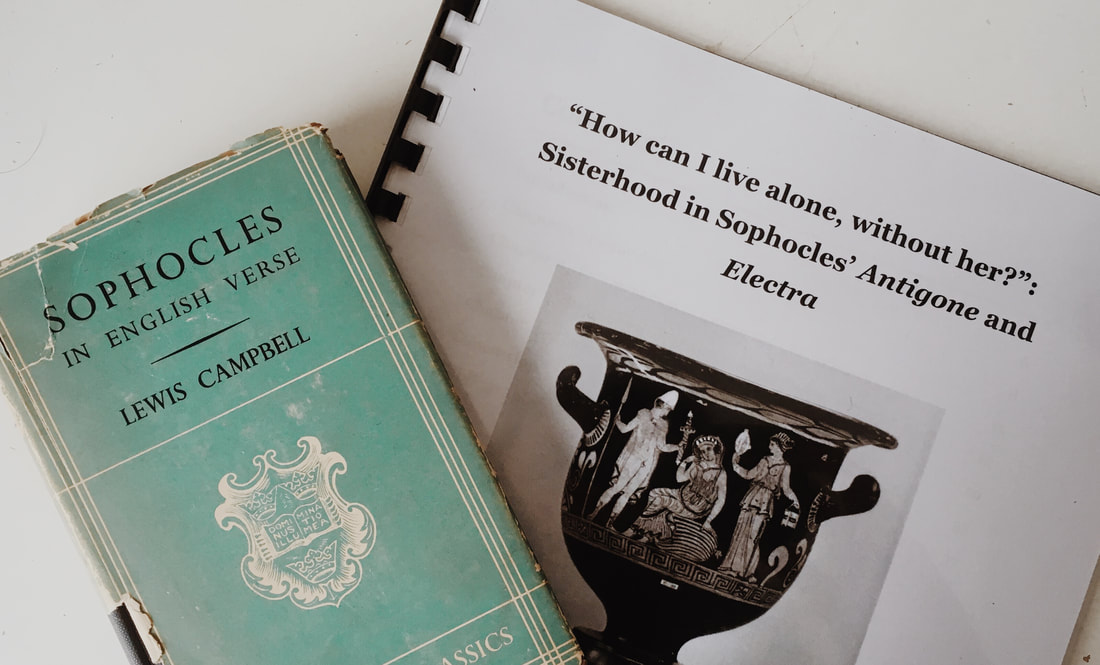"How can I live alone, without her?": Sisterhood in Sophocles' Antigone and Electra
Honours Research Thesis, supervised by Babette Puetz, 2017
In Sophocles' Antigone and Electra, relationships between sisters are fraught with conflict and aggression. Ismene and Chrysothemis exemplify traits that are conventional of the ideal ancient Greek woman. In doing so, they are criticised for their silence. Meanwhile their sisters, Antigone and Electra, choose to speak out in a way conventional of male characters. However, they must also suffer the consequences of their actions. In the end, the bond between sister and brother seems to be the key relationship rather than the bond between sisters. Nevertheless, it seems that the choices for these sisters are limited, as they attempt to survive in worlds of misrule.
In Sophocles' Antigone and Electra, relationships between sisters are fraught with conflict and aggression. Ismene and Chrysothemis exemplify traits that are conventional of the ideal ancient Greek woman. In doing so, they are criticised for their silence. Meanwhile their sisters, Antigone and Electra, choose to speak out in a way conventional of male characters. However, they must also suffer the consequences of their actions. In the end, the bond between sister and brother seems to be the key relationship rather than the bond between sisters. Nevertheless, it seems that the choices for these sisters are limited, as they attempt to survive in worlds of misrule.

